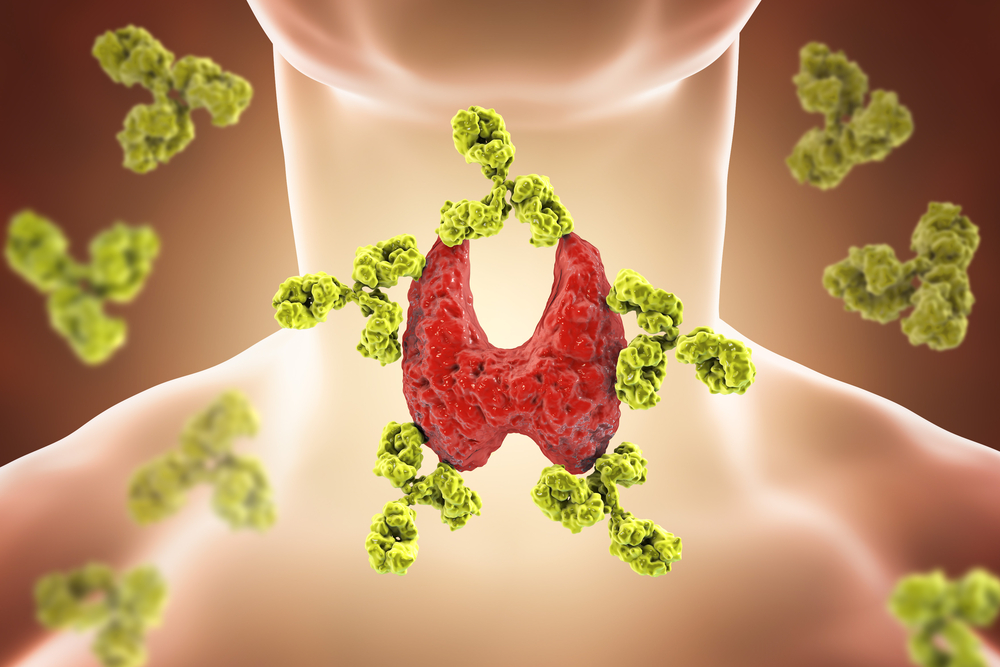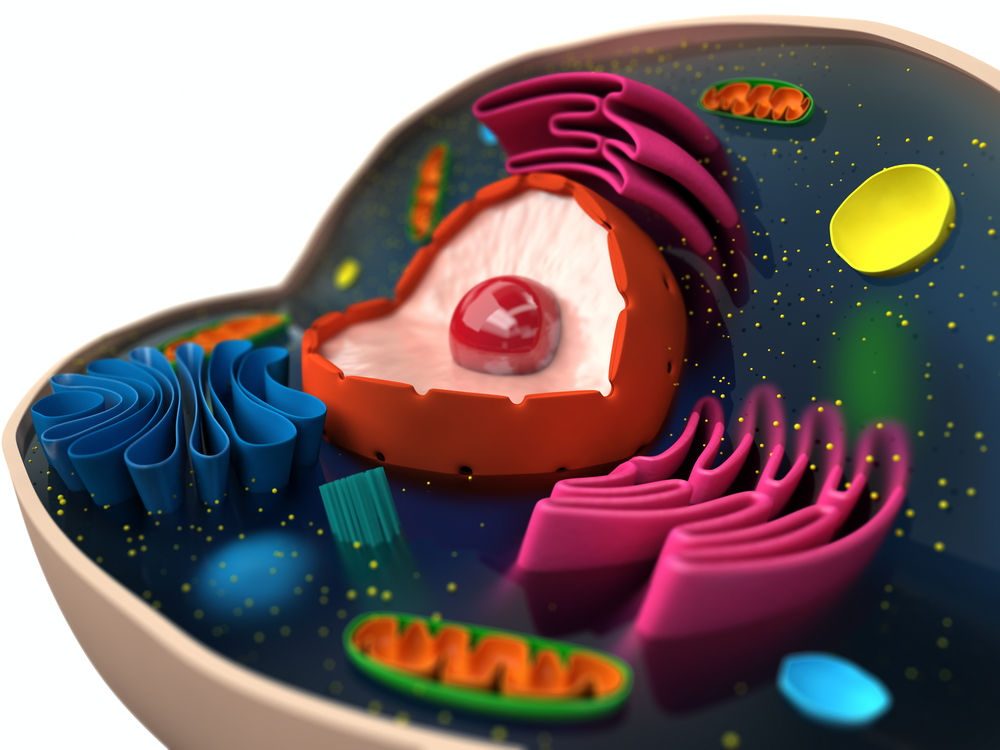- Your thyroid produces hormones that directly impact your metabolism, affecting everything from sleep to blood pressure.
- Hypothyroidism is commonly associated with autoimmune diseases and can have a direct impact on your weight.
- Weight management strategies for hypothyroid sufferers involve lifestyle changes and hormone treatments.
Dieting is never easy, but it’s especially difficult when even your best efforts don’t produce results. Some people can do everything right, from hitting the gym three times a week to saying no to salad dressing, and still find themselves struggling to drop more than a few pounds.
If this describes you, then consider the possibility that something other than fatty foods could be standing in your way. Your metabolism could be at the mercy of a medical condition known as hypothyroidism.
So let’s do a little investigation into hypothyroidism, how it affects your weight, and what you can do to feel and look your best.
Introducing the Thyroid Gland
Your thyroid is a large gland that rests at the base of your throat. This butterfly-shaped structure hugs the trachea right where it meets the larynx – the part of your throat that sticks out.
The thyroid is part of the endocrine system. In other words, it secretes hormones into the bloodstream, which are then transported throughout the body. These hormones have a variety of important functions, including regulating your heart rate and metabolism.
It’s thanks to these hormones, triiodothyronine (T3) and thyroxine (T4) chief among them, that our bodies are able to effectively process food, turning it into energy. Put simply, the thyroid keeps our hearts strong, our organs working, and our bodies warm.
Sometimes the thyroid can produce too many or too few of these hormones. Normally when this happens, the pituitary gland and the hypothalamus step in.
First, the hypothalamus recognizes that there is too much or too little of these hormones and releases the thyrotropin releasing hormone (TRH) in response. The TRH tells the pituitary gland to produce more or less thyrotropin (also known as thyroid-stimulating hormone or TSH).
If there is less TSH, the thyroid will produce less of its own hormones. If there is more, it will produce more. This self-regulating feedback loop keeps the thyroid (and the body) in balance.
What Is Hypothyroidism?
Every once in a while this feedback loop fails, and the thyroid continues to produce too many or too few hormones.
The former is referred to as hyperthyroidism and characterized by increased metabolism, which can lead to a rapid heart rate, severe weight loss, mood swings, sweating, sleeplessness, and more. Think of someone whose body and mind are in overdrive.
The latter is referred to as hypothyroidism and has the opposite effect on the body. The metabolism slows, leading to a slower heart rate, lower body temperature, fatigue, and, of course, weight loss.
What causes the thyroid feedback system to stop working? There are a variety of factors that interfere with thyroid function and can lead to hypothyroidism. Beginning with:
Autoimmune Diseases
Some autoimmune diseases negatively impact the thyroid as the antibodies produced by the body attack healthy tissues, although this is rare. For example, only 6% of people with Lupus have resulting hypothyroidism. However, one autoimmune disease in particular is heavily associated with the condition and is, in fact, its leading cause in the United States.
Hashimoto’s Thyroiditis, also known as chronic lymphocytic thyroiditis, is an autoimmune disease that specifically affects the thyroid, causing it to become inflamed, which in turn leads to tissue decay and prevents the thyroid from being able to produce enough hormones.
Thyroid Inflammation
Sometimes thyroid inflammation is not tied to Hashimoto’s Thyroiditis. In these cases, the condition isn’t chronic but could be pronounced enough to cause long-term damage to the thyroid. This type of inflammation can result from hyperthyroidism. However, it’s especially common postpartum, affecting up to 8% of women shortly after giving birth.
Radiation Therapy
As with Hashimoto’s Thyroiditis, the thyroid will not work properly when severely damaged. Radioactive iodine therapy for thyroid cancer can damage the thyroid and result in hypothyroidism long after the cancer has been extinguished. This therapy is also sometimes used to treat hyperthyroidism.
Thyroid Surgery
Surgeons may need to remove part or all of the thyroid when treating diseases like Thyroid cancer. When this happens, the ensuing hypothyroidism is to be expected.
Medications
Some heavy-duty prescription medications can negatively impact thyroid function. Drugs like Lithium slow thyroid production, as do the anti-thyroid medications used to treat hyperthyroidism.
Problems with the Pituitary Gland
Occasionally, the problem doesn’t stem from the thyroid itself. If the pituitary gland is injured during surgery or suffers from pituitary disease, it won’t be able to fulfill its signaling function properly.
Whatever the underlying cause for the condition, hypothyroidism builds relatively slowly and comes with a host of warning signs. If you think hypothyroidism may be responsible for your weight loss woes, then keep an eye out for some of these other symptoms.
- Fatigue — Slow metabolisms don’t process food for energy efficiently. They lead to fatigue, which can turn into depression.
- Increased cold sensitivity — Slow metabolisms lead to lower body temperatures, which in turn can cause cold sensitivity.
- Fluid retention in muscle and joints — Low body temperature leads to fluid retention, which leads to pain, stiffness, and swelling.
- Dehydration — This is tied to fluid retention in the body and may manifest as dry skin, constipation, and hair loss.
- Puffy face — Fluid retention can also make your face appear bloated.
- Muscle weakness — Hypothyroidism comes with a slow heart rate and low blood pressure. With such poor circulation, muscles in the extremities can become weak. This is also a symptom of peripheral neuropathy (nerve damage), which is a common complication of the condition.
- Mental impairment — Lack of sufficient blood flow to the brain can lead to memory problems.
- High cholesterol — An underactive thyroid prevents the body from efficiently breaking down cholesterol, which can lead to high levels of it in the blood.
While hypothyroidism is not considered to be a medical emergency, it can become one if left untreated. Advanced hypothyroidism (myxedema) comes with dangerously low-blood pressure and body temperature. In fact, the body slows so much that the affected individual may become unresponsive — or even slip into a coma.
Thyroids and Weight Gain
While it’s important that you appreciate the scope and severity of hypothyroidism, we know why you’re really here. That underactive thyroid is causing you to put on weight, and you want it to stop. Fair enough.
Before you can make that happen, though, you need to understand how your thyroid affects your weight. After all, the thyroid’s effect on body weight is both direct and indirect, making the question of combating it rather complicated. What’s more, experts disagree over exactly how responsible an underactive thyroid is for weight gain.
By now you know that your thyroid directly affects your metabolism. In fact, basal metabolic rate (BMR), which measures metabolism, was one of the earliest tests used to determine thyroid disorders. These days hypothyroidism is more commonly diagnosed using a blood test, however, the relationship between the thyroid and BMR levels is well documented.
A high BMR indicates a high metabolism and is correlative with hyperthyroidism. When BMR increases, either due to drugs (such as amphetamines), hyperthyroidism, or something else, the individual in question will likely lose a significant amount of weight. The opposite is somewhat true of hypothyroidism, which correlates with low BMR.
The relationship between low BMR and weight loss has also been documented. A 2005 study in the International Journal of Obesity examined the resting metabolic rate (RMR) of 155 adults of Italian descent. The study determined that there was a relationship between RMR and weight gain over time. It’s important to note that BMR and RMR measure the same things and are essentially interchangeable when it comes to questions of metabolism.
On the other hand, a 2016 study in the American Journal of Clinical Nutrition determined that there was no appreciative weight gain associated with low BMR. This is consistent with the American Thyroid Association’s (ATA) claim that, unlike hyperthyroidism, which can dramatically impact weight, hypothyroidism is only responsible for 5-10 pounds of weight gain. They go on to state that most hypothyroid weight gain is actually salt and water accumulated in the body as a result of the condition.
But if that’s true, then where is all this weight coming from, and why is it so hard to lose?
While it’s true that weight and metabolism are connected, your weight is influenced by more than just BMR levels. Hormones other than those produced by your thyroid can act on your weight, as can certain proteins, chemicals, and more. Finally, your diet and activity levels have a huge impact on weight gain and loss.
Therefore it’s important to consider secondary factors when examining hypothyroid weight gain. Maybe your low BMR is only responsible for a portion of your weight gain. However, symptoms like fatigue and depression can drastically lower your activity levels, thereby encouraging more weight gain. What’s more, stiffness, swelling, and aching in the muscles and joints can act as significant deterrents to activity and exercise.
What does this mean for you? If you suspect hypothyroidism, then it’s not good enough to simply have the condition treated. You need to tackle the problem from multiple angles.
Hypothyroid Weight Loss
If you suspect that you have hypothyroidism, the most important thing you need to do is get it diagnosed and treated. For one thing, there are bigger concerns than just your weight at stake. For another, weight loss efforts are going to be less effective if your low metabolism is constantly working against you.
Let’s assume for a moment that you’ve been diagnosed with the condition and are currently being treated. It can take time for certain thyroid medications to work, and you may find yourself trying several different treatment options before you’re successful.
So what can you do in the interim to manage your weight and get started on a new you?
Get Moving
While this is sound advice for any dieter, it’s particularly important for those suffering from hypothyroidism. Your body doesn’t want to move but you need to make it move. That goes for more than just hitting the gym.
Walk instead of driving whenever possible. Get up and do chores around your house. Hypothyroidism is insidious in the way it can undermine even the little things that used to help keep your weight in check.
When you’re at the gym, consider strength training exercises. While the effect of muscle mass on metabolism is often overstated, there does appear to be at least some correlation between strength training and increased RMR. If nothing else, it certainly can’t hurt.
Eat Thyroid Friendly Foods
Of course, you’ll want to eat healthier foods. However, you can also choose to go the extra mile in your diet and focus on foods with anti-inflammatory properties. For example:
- Fish, especially fatty fish like salmon and tuna
- Leafy greens, like spinach and kale
- Fruit, particularly berry fruits like strawberries and blueberries
- Tomatoes
- Olive oil
- Nuts
Avoid foods that cause inflammation, like processed carbohydrates. These include white bread, pasta, and pastries. Fried foods and foods that contain artificial sweeteners are also best avoided. This will help to ease the inflammation in your muscles and joints that discourage you from exercising.
It’s also worth considering blood sugar when selecting foods. Your body is not as efficient as it should be at managing blood glucose levels. Therefore, help it out by avoiding sugary foods, especially those with little to no nutritional value.
Finally, you might have heard that gluten suppresses thyroid activity and that a gluten free diet helps many who suffer from hypothyroidism to feel better. It remains unclear whether this is the case for everyone or simply those who suffer from Celiac disease (gluten intolerance).
Celiac disease has a high comorbidity rate with Hashimoto’s Thyroiditis, meaning it’s possible those hypothyroidism sufferers who report success with a gluten-free diet may suffer from Celiac disease as well (even without knowing it). In short, this tact is unlikely to benefit you if you’re not already gluten intolerant.
Eat Smaller Meals More Frequently
You may have heard that eating small, frequent meals is actually a weight loss myth. According to a recent study from the Loma Linda University School of Public Health, small, frequent meals are associated with a higher BMI.
That being said, it may be just the ticket to help someone with hypothyroidism feel their best. It helps to curb the appetite and keep energy up, both of which can be challenges for someone with hypothyroidism. It also doesn’t overload a system that’s already slow to process energy.
Stay Hydrated
Remember that hypothyroidism can leave your skin dry, your hair brittle, and your bowel constipated. This dehydration can affect other hypothyroid systems as well and has been associated with fatigue and slowed metabolism.
Drink more water. It’s that simple. It will help counteract some of your symptoms and leave you feeling better. It also contributes to a full feeling that makes dieting a little easier.
Get Better Sleep
Just because hypothyroidism leaves you feeling sleepy doesn’t mean you’re getting enough sleep. There is a high instance of sleep apnea in patients with hypothyroidism. Sleep apnea dramatically reduces the quality of sleep, leading to further fatigue. What’s more, other complications of an underactive thyroid, like being overweight or in pain, interfere with sleep patterns as well.
Sleeplessness negatively affects the metabolism. Too little sleep can make it harder to lose weight. Encourage your body to sleep more by addressing any medical concerns like sleep apnea with your physician. Also, try giving yourself more time to sleep, avoid eating too soon before bed, and create a nighttime ritual that will help foster relaxation.
If you are being treated for hypothyroidism, consult your physician before making any sweeping changes to your diet or lifestyle. There are other factors to consider, like complications you may be experiencing and side effects from your thyroid medication. When it comes to a medical condition that presents at varying levels of severity, there is no one size fits all approach.
Treatment for Hypothyroidism
The standard medical treatment for hypothyroidism is a synthetic hormone. This hormone is taken on a daily basis and replaces the hormones lacking in your body as a result of your thyroid problem. There are different types of thyroid hormone medication, however, Levothyroxine tends to be the primary choice.
Unlike with hyperthyroidism, there is no surgical option for hypothyroidism. There’s also no way to reliably “cure” hypothyroidism. You will be taking your thyroid hormone medication indefinitely.
Whatever medication you and your physician settle upon, the treatment will take time. You can try adjusting your dose until you find the best balance for you. And remember, any given medication takes time to build up in your system, sometimes as long as six weeks.
At the end of the day, you could well be looking at a long road before you start feeling your best, so all the more reason to start developing thyroid healthy habits now.
» If you’re interested in learning more about weight management, sleep, and diet, Connect with our medical review team to learn more about weight management.









